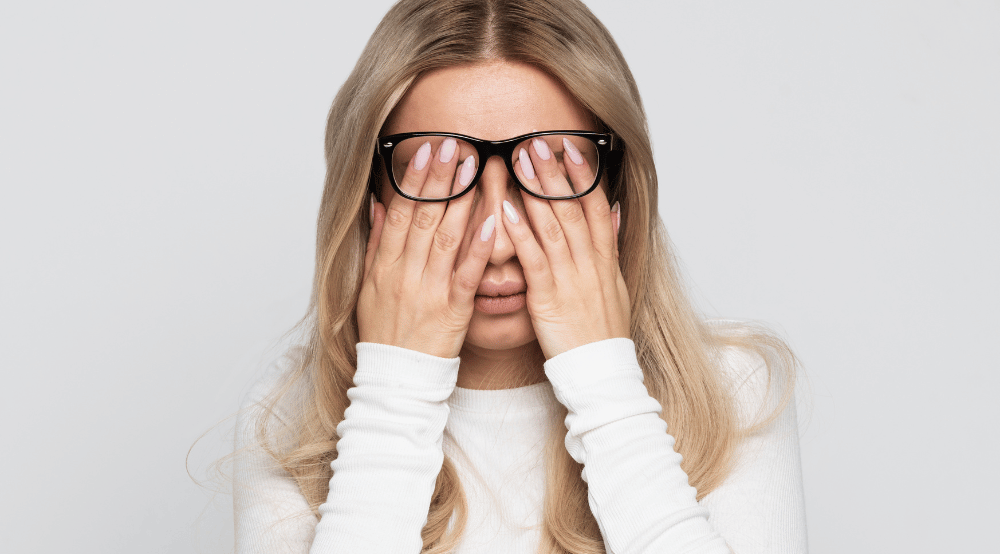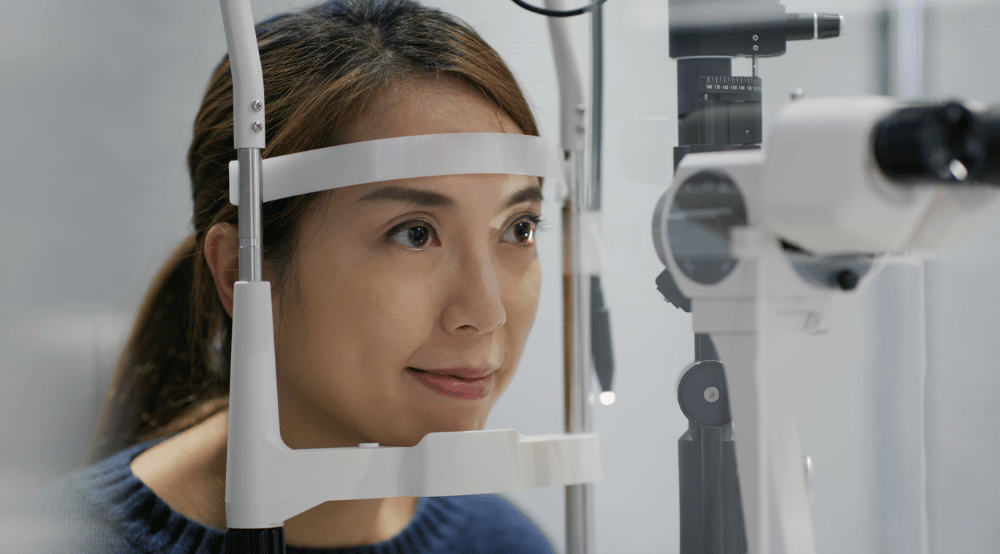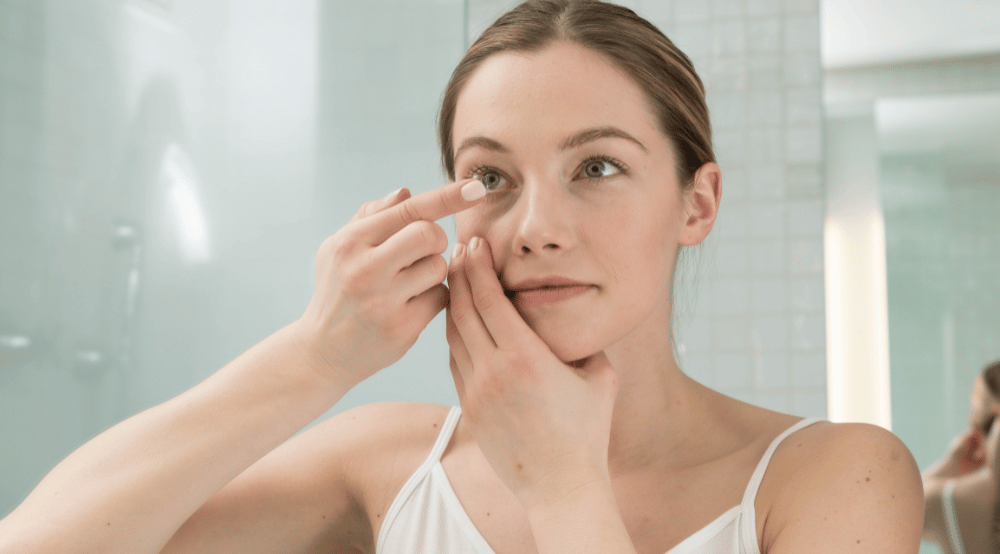We are all getting used to new ways of functioning with COVID-19 safety protocols. What do these changes mean for our eyes?
1. Wearing glasses can protect your eyes!
We know COVID-19 can be transmitted in an aerosolized way from person to person, and we do a good job of wearing masks to limit this, but the virus may find a transmission route through our eyes. Our tears carry particles through little drains in the inner corner of our eyes and into our nasal passages. Social distancing is a good way to prevent this type of exposure. If your work environment or other circumstances require you to be closer than six feet to someone, make sure you have a barrier to be behind. This could be a plexiglass sneeze guard like cashiers use, a face shield (we wear these in our office when we need to get close), or even glasses. If you wear prescription glasses, you are getting some protection. We sell protective glasses and shields for this purpose from Smith Optics.
2. Are your glasses getting foggy when wearing a mask?
Wearing masks that cover our nose and mouth is an important way to limit the spread of COVID-19. However, all the hot, moist air we breathe out puffs out from under the mask and condenses on our lenses. This can be inconvenient and annoying, but it can even be dangerous if our lenses fog when we are driving. To remedy this, adjust your mask so the top part over your nose is snug; this limits the air that gets to your glasses. Lift your glasses a little so they sit on top of the edge of your mask; this creates a little more space for the air to circulate instead of colliding directly with your lenses.
If these adjustments don’t work reliably, or if you want less fog more consistently, we use an antifog treatment. For $9, you get a little kit and treat your glasses at home. The Fog Defender system from Zeiss coats your lenses with a compound that resists condensing water molecules. You can apply it as often as necessary; we found that once a week does pretty good for most folks.
3. Is that SUNGLASSES weather I see?
Isn’t it nice to finally get some sun and warm weather? After months of cloudy, chilly weather, your eyes may seem more sensitive on warm bright days. Sunglasses in general are a good idea to reduce the sensitivity. We know that UV light exposure can have accelerated aging effects on our eyes and even makes us more susceptible to eye health conditions like cataracts or even melanoma in our eyes. Make sure any sunglasses you wear block 100% of UV rays. Most quality sunglasses these days do, but they should be labeled.
Sunglasses may reduce sensitivity to light, but they don’t necessarily limit the glare effects you get from water, wet roads, or even reflections off of other cars in the morning or evening. This is why we always recommend polarized sunglasses. Polarization stops the type of reflected or glaring light that makes it hard to see when driving, fishing, or boating and provides more relaxed and comfortable vision. We carry many kinds of sunglasses for sports enthusiasts, fashionistas, and utilitarians. We work with Zeiss Vision Care and Smith Optics to customize your sunglasses experience with mirror treatments, polarization, different colored tints, and prescription and non-prescription lenses. Not only will sunglasses protect you from the sun, but they act as a barrier to prevent COVID-19 from floating onto your eyes.
4. Open for all services!
As your friendly, local eye care provider, Mad River Eye Care is now open for all services. We are currently keeping our schedule spaced so we don’t have more than one or two people here at a time. This gives us the space and time to keep everything in the office disinfected and prevents congestion that can make social distancing difficult. We wear face masks, face shields, and gloves. We have hand sanitizer and plenty of soap and water. We check our temperature every morning, and yours when you arrive at the office. Don’t be bashful, if you’re due for an eye exam, need new glasses or contact lenses, have something stuck in your eye, or are experiencing changes in your vision or new floater spots, give us a call and we’ll reserve a spot on our schedule.




